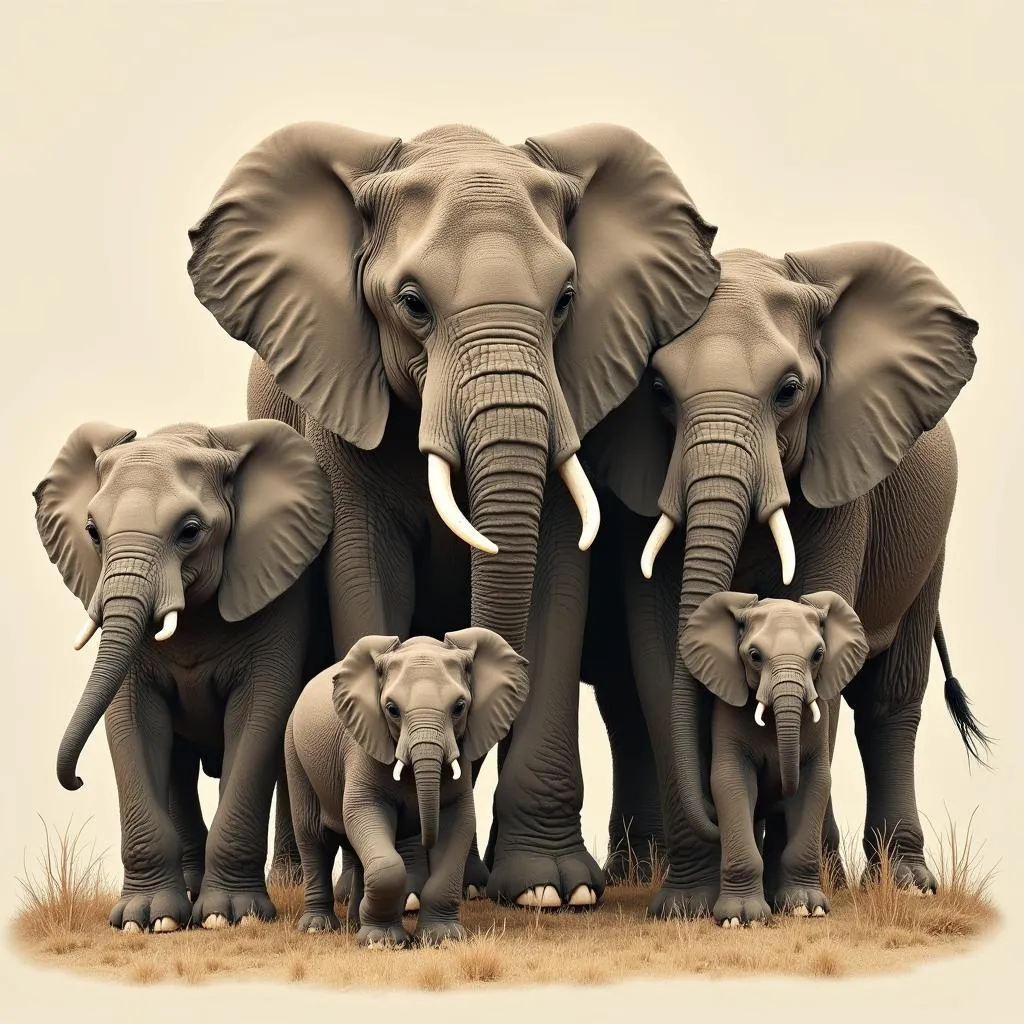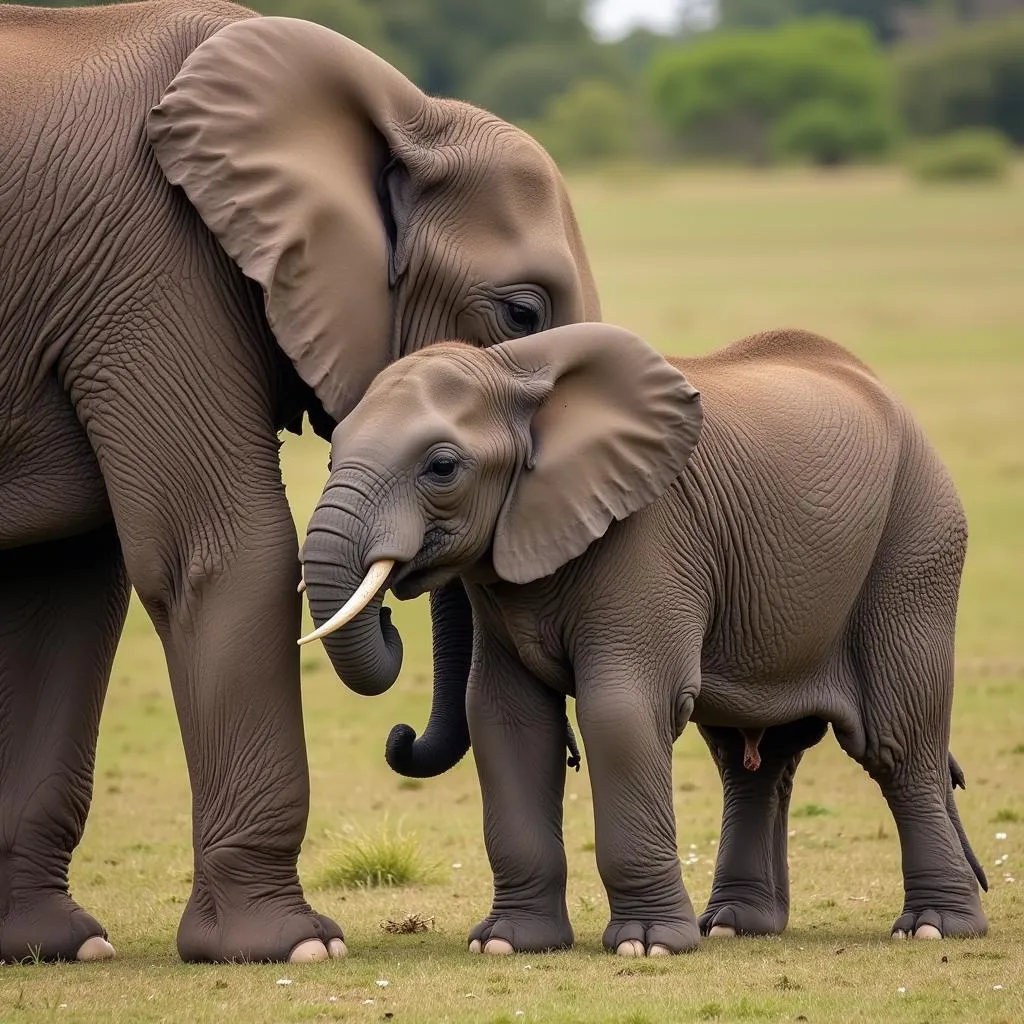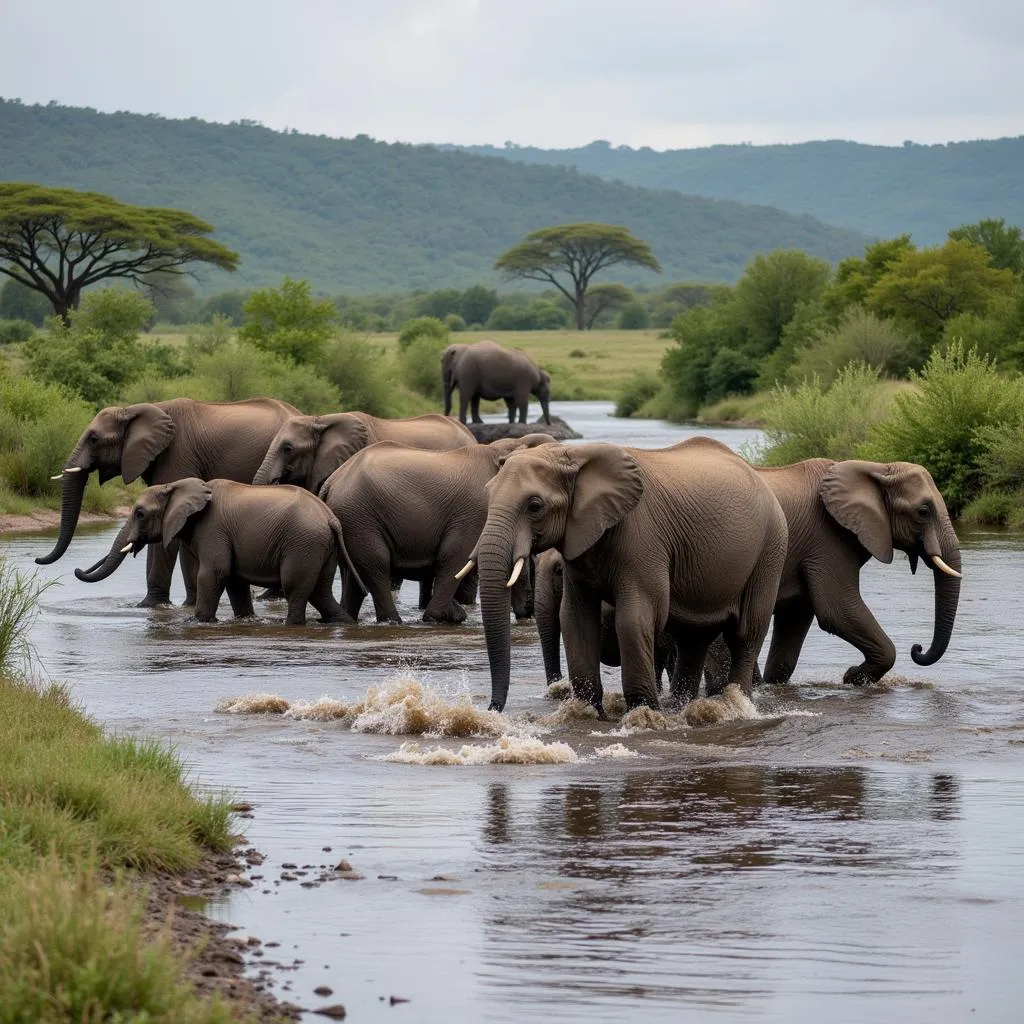The Majestic African Elephant: A Lifetime of Wonder
The African elephant, an iconic symbol of the continent’s rich biodiversity, is renowned for its majestic size, intelligence, and complex social structures. Their lifespan, however, is often overlooked, a testament to the incredible journey these magnificent creatures undertake from birth to the twilight of their years. This article delves into the fascinating details of an African Elephant Lifetime, exploring its stages, challenges, and the factors that shape their long and remarkable existence.
The Start of Life: From Tiny Calf to Young Explorer
An African elephant calf’s life begins within a matriarchal family, where it’s nurtured and protected by its mother and aunts. The first few years are critical, with the calf learning essential survival skills from its family. It’s a time of constant exploration and play, as the young elephant discovers its surroundings and develops its physical and cognitive abilities. The bond between mother and calf is particularly strong, with the mother providing constant care, guidance, and protection from potential dangers.
Adolescence and Independence: A Journey of Discovery
As the young elephant matures, its independence gradually increases. Around the age of 12, it begins to venture further away from its family, exploring the vast landscapes of its environment. During this period, the young elephant learns to forage for food, navigate its territory, and even defend itself from predators. It’s also a time of significant social development as it interacts with other young elephants and forms strong bonds with individuals within its age group.
Adulthood: The Leader of Tomorrow
By the time an African elephant reaches adulthood, typically around 15 years old, it has developed into a powerful and intelligent creature. Males often leave their natal herd to form bachelor groups, while females typically remain with their families, forming the core of the matriarchal society. This stage of life is characterized by an increase in responsibilities, as mature elephants become vital members of their herds, playing key roles in foraging, protecting calves, and guiding the younger generation.
The Golden Years: Wisdom and Legacy
As African elephants age, they become revered figures within their herds. Their knowledge of the land, its resources, and its dangers becomes invaluable to their family and community. These elders provide guidance and support, ensuring the continued survival and well-being of their herd. Their legacy extends beyond their immediate family, as their wisdom and experience help to preserve the traditions and knowledge of their species for generations to come.
Threats to Longevity: Challenges Faced by the African Elephant
While African elephants possess incredible resilience, their longevity faces significant threats. Habitat loss, poaching for ivory, and human-wildlife conflict are major concerns. These challenges put pressure on elephant populations, impacting their ability to thrive and reach their full potential lifespan.
What are the biggest threats to African elephant longevity?
- Habitat Loss: As human populations grow, deforestation and land conversion threaten the habitats vital for elephant survival. This limits their access to food, water, and suitable breeding grounds.
- Poaching: The illegal ivory trade continues to endanger elephant populations. The demand for ivory drives poaching, leading to the tragic loss of many elephants before they can reach their full life expectancy.
- Human-Wildlife Conflict: As human activities encroach on elephant habitats, conflict arises. Elephants may raid crops or threaten human safety, leading to retaliatory killings or displacement, impacting their longevity.
The Importance of Conservation
Protecting the African elephant is crucial for safeguarding the biodiversity and ecological balance of the continent. By understanding the challenges they face and supporting conservation efforts, we can ensure these magnificent creatures continue to thrive for generations to come.
How can we help African elephants?
- Support organizations dedicated to conservation: Many organizations work tirelessly to protect elephants, tackling poaching, promoting sustainable land use, and advocating for their well-being.
- Educate yourself and others about the importance of elephant conservation: Spread awareness about the threats facing elephants and the actions we can take to protect them.
- Make responsible choices: By supporting sustainable products and practices, we can reduce the demand for ivory and support efforts to conserve elephant habitats.
Conclusion
The life of an African elephant is a testament to the power, intelligence, and resilience of nature. From their early days as playful calves to their role as wise elders, each stage of an elephant’s lifetime is filled with wonder and significance. By understanding their challenges and supporting conservation efforts, we can help ensure that these majestic creatures continue to grace the African landscape for generations to come.
Frequently Asked Questions
- What is the average lifespan of an African elephant? In the wild, African elephants typically live for 60-70 years, but some individuals can reach 80 years or more.
- What are the major factors influencing elephant longevity? Factors such as habitat quality, access to food and water, the presence of predators, and human interaction all influence an elephant’s lifespan.
- How do elephants communicate? Elephants communicate using a variety of vocalizations, including rumbles, trumpets, and screams. They also communicate through body language and scent.
- Why are elephants considered keystone species? Elephants play a vital role in shaping their ecosystems, through their foraging habits, which help to clear vegetation and create open spaces.
- What are the most effective conservation strategies for African elephants? Effective conservation strategies include habitat protection, anti-poaching measures, and community engagement programs that promote peaceful coexistence between humans and elephants.
 A family of African elephants gathers in the savanna
A family of African elephants gathers in the savanna
 African elephant calf nursing from its mother
African elephant calf nursing from its mother
 An elephant herd crosses a river in Africa
An elephant herd crosses a river in Africa
Do you have any other questions about African elephants? We’d be happy to answer them! Please contact us for any further assistance.


